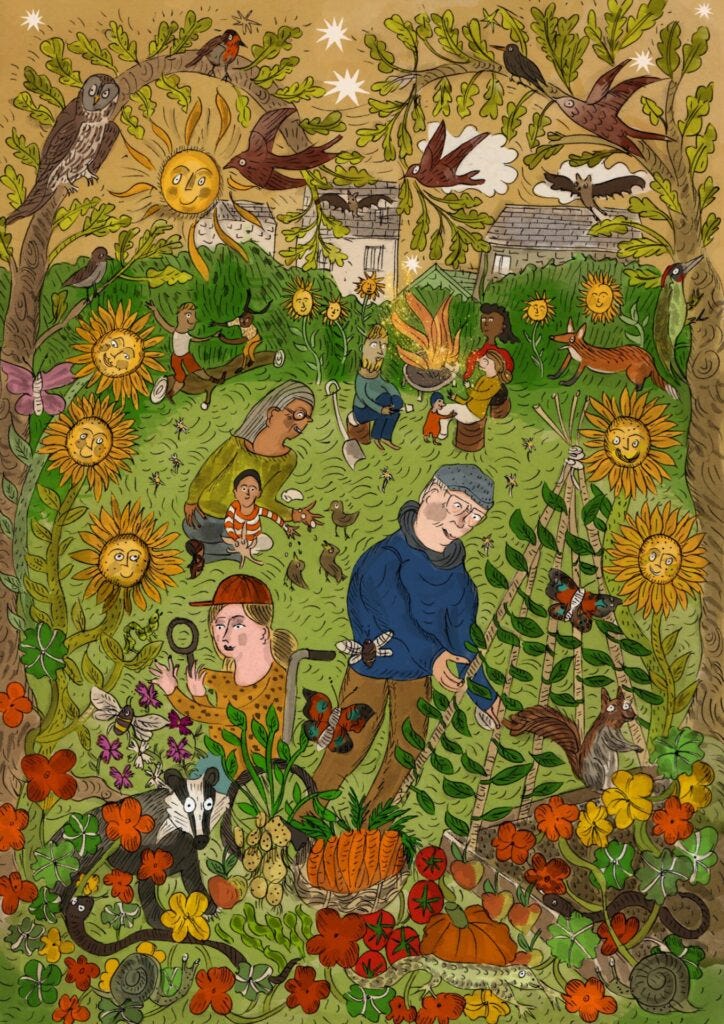How can local food create happiness? [WFJ #57]
Can a Frome-grown carrot really offer a better quality of life than a Greggs sausage roll?
In an article I recently wrote for Riverford’s Wicked Leeks, nutritionist and psychologist Kimberly Wilson told me something low-key revelatory. “The quality of our nutrition and our nutritional status,” she said, “can have profound effects on how we feel in ourselves, and also on our behaviours.”
Specifically, Kimberly pointed out a study conducted in 2002, which found that improving the nutritional quality of meals served to inmates in a UK prison reduced incidents of violence by 30%.
The stat is striking in itself, but the date of its publication also tells us something – for some reason, the links between our food and our mood have, and still do, remain so very underexplored. Even within other public sector institutions, and even with the existence of similar evidence – after Food For Life conducted an ‘intervention’ to improve the food served from the canteens of three UK schools a couple years ago, they observed not just an increase in pupils’ knowledge and confidence to make healthier meal choices, but the secondary effect these changes had on students’ positive social eating behaviours and dining hall atmosphere.
Whether in schools or out, the status of childrens’ mental health is especially, and increasingly, pressing. Roughly half of the average UK adult’s diet is from ultra-processed foods (UPFs) like soft drinks, ready meals, and confectionery. Among kids though, that figure’s more like 65%. The physical health links with UPFs are well documented, but again it’s the mental ones we should also be worried about – multiple studies, like this one published by the University of Oxford, note the correlation between the consumption of UPFs and the likelihood of experienced depression.
Perhaps, even though our relationship with food and mood is complicated, none of this is especially surprising. You just have to ask yourself who’s really prompting the choices – be it to do with food, entertainment, or material goods – of upcoming generations. Is it their parents and communities? Or is it really in what they see on the telly, the web, and Instagram feeds?



